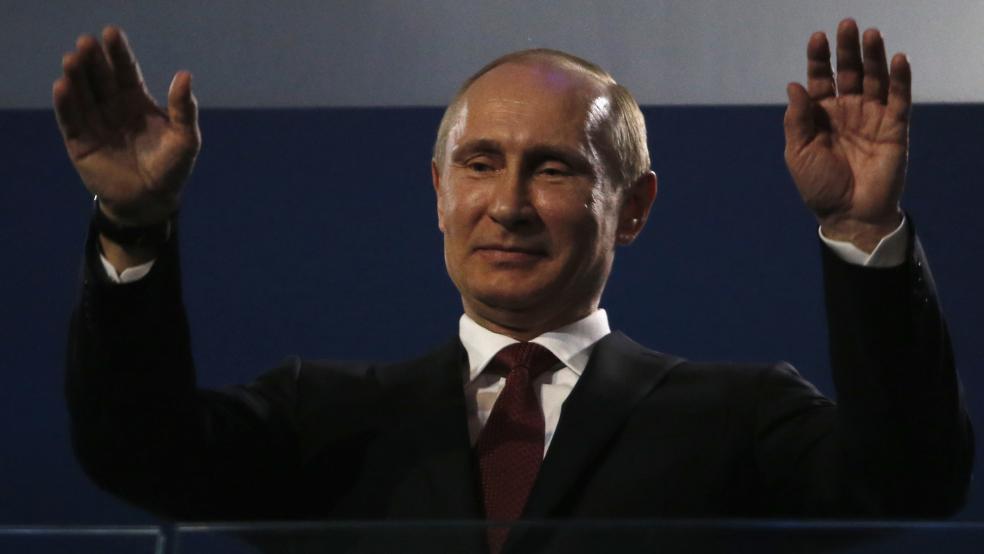Russian President Vladimir Putin got a possible new adversary on Friday when the Defense Department tapped Army General Curtis "Mike" Scaparrotti to led U.S. and NATO forces in Europe.
Scaparrotti, who has served as the head of U.S. forces in South Korea for the last three years, will take the reins from Gen. Phillip Breedlove as the commander of European Command and Supreme Allied Commander of NATO. This is at a time when the Obama administration is looking to boost support to eastern European allies in the face of Russian aggression.
Related: Putin Is Upgrading Russia’s Massive Cold War Battlecruisers
The Pentagon requested four times the amount spent on the so-called European Reassurance Initiative for fiscal year 2017, which covers training and for U.S. and European forces, raising the total outlay to $3.4 billion.
Most of that money, $2 billion, will go toward putting an armored brigade combat team in the region 24/7 on a rotational basis. The addition to a Stryker vehicle brigade and an infantry brigade already in Europe means 3,000 to 5,000 U.S. troops will continually rotate throughout NATO countries, so as not to violate the coalition’s charter that prohibits a permanent military presence.
If approved, the increase in U.S. boots on the ground will surely rankle Moscow. There’s no question Putin and his regime have enjoyed keeping Washington on its toes in the two years since it’s lightning-fast annexation of the Crimean Peninsula.
Related: Move Over, F-35: Russia Has Raised the Stakes for Next-Generation Fighters
The Kremlin has caused the White House no small amount of headaches with its support for separatists in eastern Ukraine, the overt saber rattling surrounding the modernization of its sprawling military arsenal and its aggressive air campaign in Syria.
While some could argue that the administration’s moves are too little, too late, and that Putin will merely shrug off the increased American presence, though the increased forces might just be the beginning of a bigger commitment that will be carried out by the next president.
The years of tension between the former Cold War opponents have raised serious questions about the utility and effectiveness of NATO in light of Russia’s advances--questions that will have to be addressed soon if the 28-member organization is to carry on as bulwark against Moscow.
Related: Russia’s Latest Weapons Sale to Iran Shifts the Balance of Mideast Power
As for Scaparrotti himself, he leaves the Korean Peninsula at a hair-raising time. In response to large-scale U.S.-South Korea military exercises and new round of economic sanctions imposed by the United Nations, Pyongyang in recent weeks has embarked on a new campaign of belligerence.
The Hermit Kingdom has launched multiple short-range rockets into the sea, and on Friday, the state’s official news agency reported that leader Kim Jong Un had ordered another nuclear test.
The four-star will likely need all the skills he’s learned over his three-year stint in Korea to divine, and possibly counter, moves by Russia--something Defense Secretary Ash Carter alluded to his statement announcing Scaparrotti’s nomination.
Scaparrotti has “demonstrated his excellence as a soldier-statesman, skills he will need as he works closely with our most trusted Allies and partners in Europe.
“General Scaparrotti is one of the U.S. military's most accomplished officers and combat leaders, and it is my hope that the Senate will act quickly on his nomination,” Carter said.





